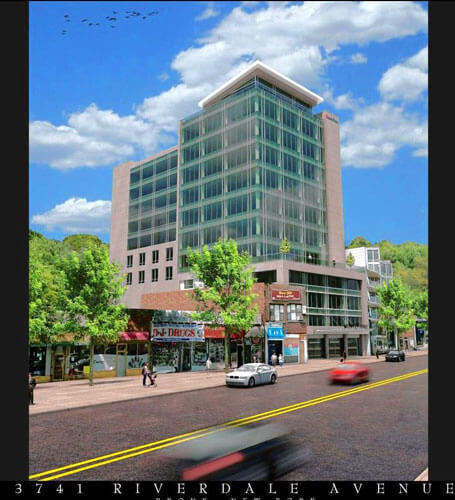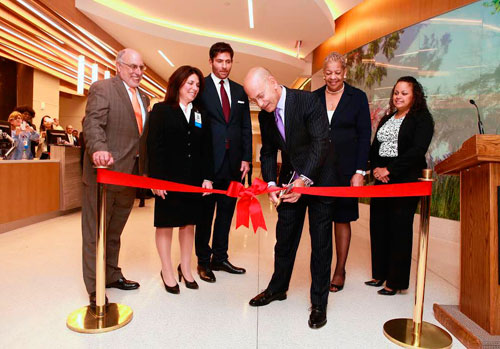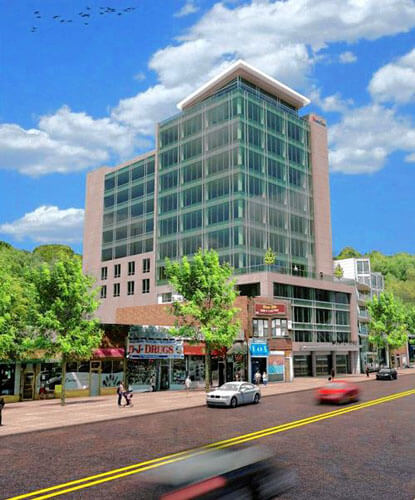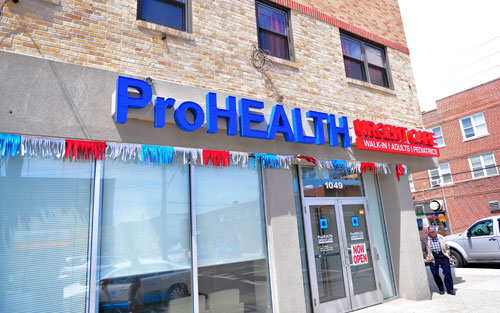Statewide healthcare stakeholders are taking a scalpel to a new provision in New York’s budget that will force towering new Bronx facilities to first answer to the community in a series of forums.
The new law – engineered by Senator Jeff Klein and supported by Assemblyman Jeff Dinowitz to stop a mega medical facility in Riverdale – requires any hospital-affiliated outpatient facility planned for the Bronx, over three stories tall, or greater than 30,000 square feet in size, to go through a lengthy community forum process, before the state Department of Health ultimately rules if it fits a neighborhood’s needs.
The provision has stopped a proposed 11-story Montefiore Medical Center slated for a residential stretch of Riverdale in its tracks – but New York’s healthcare powers are concerned over the larger effects of the law.
The state’s largest healthcare workers union and two separate hospital associations boasting hundreds of members have issued statements denouncing the law for bogging their potential plans for new facilities in “unnecessary” red tape.
“We are deeply concerned by the New York State budget provision that creates complicated, costly, and unnecessary requirements for the establishment of hospital-affiliated outpatient facilities in the Bronx,” wrote George Gresham, president of 1199 SEIU United Healthcare Workers East, and Kenneth E. Raske, president, Greater New York Hospital Association.
“We are equally concerned that it applies only to health care facilities, and only to the Bronx,” the pair added.
The Healthcare Association of New York State —another group of state health advocates — joined in the chorus with its own statement that claimed that the new law could endanger Bronxites’ access to care.
“New York’s regulatory process is already unduly cumbersome, outdated and un-level across the types of providers, and needs major revamping in the opposite direction,” wrote Melissa Mansfield, the organization’s manager of media and public relations.
“This new provision adds more layers, costs, and complications when trying to provide hospital-affiliated outpatient health care in our communities and could mean residents of the Bronx would not have access to much needed outpatient medical care,” she added.
Klein defended his law, saying that it will better communities in the long run by letting them have a larger say in how the facilities are approved.
The proposed Montefiore site – reviled by Riverdale locals who said it would bring unwanted traffic congestion and ruin the nabe’s character – would have been able to build “as of right,” within the existing zoning and without any formal community input, he said.
“This law gives our community a real voice in the approval process for major health care developments,” Klein said in a statement. “With the 11-story proposed Montefiore project in Riverdale, we’ve seen how a project’s backers can try to impose their will on to the people without heeding any of their legitimate concerns about the project’s size, scale, location, traffic and parking.
“Moving forward,” he added, “I think we now have a fairer and stronger process that brings all of the stakeholders to the table.”





















